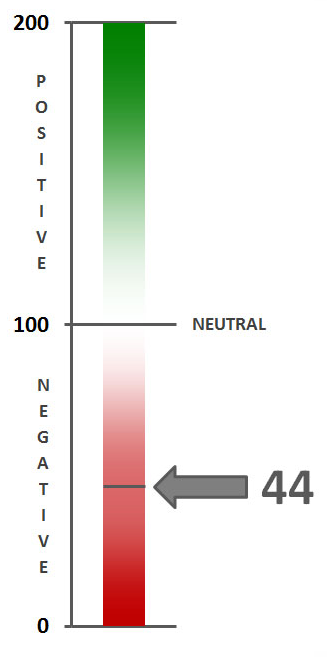Peterson Foundation's Fiscal Confidence Index More Cause for Action
Today is the last day of April, and Peter G. Peterson Foundation has released the latest result of its Fiscal Confidence Index. The Fiscal Confidence Index attempts to measure public opinion on fiscal sustainability based on polling data in three areas -- concern, priority, and expectations -- to produce a fiscal confidence index value between 0 and 200, with a "100" being neutral.
April's mark was a "44," showing that Americans feel very concerned about the state of our nation's finances. The index has remained in the low to mid 40s since January, where the index plummeted from December's 50 to 40, likely due to the failure of both parties to reach a significant fiscal cliff deal.

Source: Peter G. Peterson Foundation
Besides the index, polling revealed some concern with important programs like Social Security and with the resources that would be available for education and high-value added research. From the report:
- With the future of Social Security at the center of public discussion, only 42% of Americans believe Social Security will have the money to provide benefits for their retirement. 47% believe Social Security will not be able to provide benefits.
- Views of Social Security’s ability to fund benefits vary significantly by age. Americans 65 and over are most confident (72%) that Social Security will provide for them. Americans 18-44 are least confident—just 25% believe Social Security will be able to provide for their retirement.
- 86% of Americans are concerned that, without reforms, Social Security and Medicare benefits will put too much of a financial burden on future generations.
- Voters place particularly high value on having resources to invest in education (75% important, 36% extremely important).
- Americans want to see the country build a strong foundation for future economic growth (77% important, 32% extremely important).
- Improving national security also rates highly (70% important, 32% extremely important).
We've seen time and time again that those outside of Washington would like our budget problems to be resolved, but in the nation's capital, progress has proceeded much more slowly. Hopefully, lawmakers will be able to put aside their differences and find a compromise that can put the nation's budget on a sustainable path.
Click here for the full results and more on the methodology.